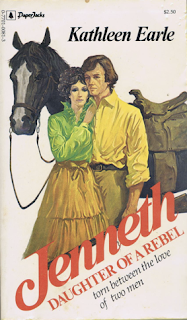Montreal in Verse:
An Anthology of English Poetry by Montreal Poets
[Leo Cox, ed]
[Montreal]: Writers of the Poetry Group of the Canadian Authors Association, Montreal Branch, [1942]
A fundraiser in aid of the Queen's Canadian Fund for Air-raid Victims in Britain, this little chapbook of was published sixty years ago this month. Just in time for Christmas.
The Second World War looms large in these pages, but is dwarfed by Mount Royal.
 |
| (cliquez pour agrandir) |
Thirty-two poets contribute thirty-two poems, and the hill that gives Montreal its name features in nearly half. I think the explanation may be found in the contributors' addresses. You won't find A.J.M. Smith, A.M. Klein or Leo Kennedy in these 48 pages, with few exceptions this is the verse of the city's privileged. And of this group, no one enjoyed greater status and comfort than Amy Redpath Roddick, whose family names kick off poetess Mildred Low's contribution, "Children of the McGill Campus":
Roddick and Redpath and old McGill,
Who, being dead, are living still,
How does it meet your kind intent
The way your benefice is spent?
Lady Roddick herself can't avoid same:
Six decades on, it's impossible to read this verse without thinking of
F.R. Scott's "The Canadian Authors Meet" and the poets "measured for their faith and philanthropics".
The good folks at Poetry Quebec have made a similar observation. That said, I'm not about to throw
Montreal in Verse on the scrap heap. If anything, it reminds me of how much there is to explore of our literary past. Contributors Stella M. Bainbridge, Lily E.F. Barry, Warwick Chipman, Leo Cox, Lorraine Noel Finley, John Murray Gibbon, Christine L. Henderson, A. Beatrice Hickson, W.J King, Alice M.S. Lighthall, William D. Lighthall, Mildred Low, Margaret Furness MacLeod, Martha Martin, Dorothy Sproule, Jean Percival Waddell, Robert Stanley Weir and Margaret Ross Woods all had titles to their names, but I've yet to pick up even one of them.
Researching these names I discover that John Murray Gibbon once wrote a universally praised, yet entirely forgotten novel entitled
Pagan Love (1922). Then there's R. Henry Mainer, whose
Nancy McVeigh of the Monk Road (1908) centres on a hard-as-nails widowed Upper Canadian tavern owner.
The most intriguing is A. Beatrice Hickson, whom
Canada's Early Women Writers tells us not only founded and ran a school for "misdirected and wayward" girls, but "painted figurines which were unique in design and costume and whose popularity outran her ability to produce them."
In language and theme, Miss Hickson – she never married – stands apart from her polite and proper fellow poets:
Before reading this slim volume of verse I'd never heard of Leo Cox, who wrote these charitable lines in his Editor's Note:
As in all anthologies, quality and style vary considerably, but all the pieces possess in common a strong love of Montreal, of her history and infinite charm. These verses are a loving tribute from sensitive citizens.
Apparently Macmillan published a collection of Cox's verse in 1941. Must track it down. I'll pass on his
Story of the Mount Stephen Club.
Object: A nicely produced, staple-bound chapbook in red paper wraps, this copy comes to me from my father. The pencilled correction to Amy Redpath Roddick's poem is in an unknown hand. Dare I hope that it is the work of Lady Roddick herself?
The 1 May 1943 edition of the
Gazette reports that nearly one thousand copies of
Montreal in Verse had been sold, contributing $200 to the Queen's Canadian Fund. The selling price was 25¢.
Access: Not found in even one of our public libraries – those wishing to borrow a copy should look to our universities. Two copies are currently listed for sale online, the most expensive of which ($45) is dedicated and signed by contributor Jean Percival Waddell.

























